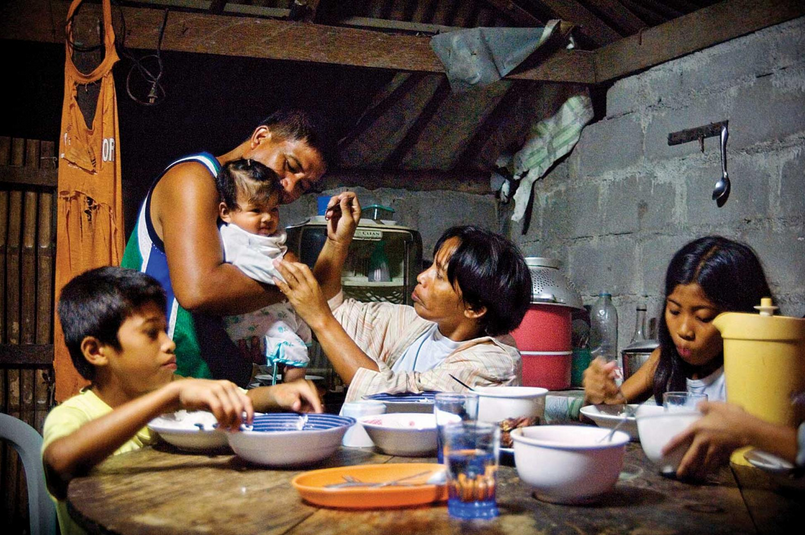Lowest-income households lost as much as Php2,700 since start of 2018
Accelerating inflation since the start of the year has eroded the incomes of the country’s poorest families. Research group IBON estimates that the poorest 60 million Filipinos have suffered income losses of anywhere from Php993 to as much as Php2,715 because of worsening inflation since the start of 2018.
Inflation rate increased from 3.4% in January 2018 to 5.2% in June. Measured using the 2012 as the base year, the June inflation rate is already more than double the 2.5% rate in the same period a year ago and four times the 1.3% inflation rate in June 2016 at the start of the Duterte administration. Measured using 2006 as the base year, the inflation rate would be 5.7%, making it already the highest monthly rate in nearly 10 years or since March 2009, said the group.
The Department of Finance (DOF) has estimated the first to sixth income deciles in the country as having monthly household incomes of Php7,724 to Php21,119 in 2018. Assuming these to be constant in the first semester and deflating them monthly by the prevailing inflation rate allows the erosion of household purchasing power to be estimated. Each decile covers 10% of the country’s approximately 23 million households arranged from poorest to richest.
IBON estimates that in the first six months of the year so far, households in the poorest first decile with Php7,724 monthly income have cumulatively lost Php993 due to inflation, those in the second decile (Php10,711 monthly income) have lost Php1,377 and those in the third decile (Php12,835 monthly income) have lost Php1,650. Households in the fourth decile (Php15,132 monthly income) have lost Php1,945, those in the fourth decile (Php17,309 monthly income) lost Php2,225, and those in the sixth decile (Php21,119) lost Php2,715.
The peso’s depreciation, rising global oil prices and the newly-implemented Tax Reform of Acceleration and Inclusion (TRAIN) Law are among the most important proximate sources of inflationary pressure. Of these factors, TRAIN Package 1 is most directly within the Duterte administration’s control, said the group.
TRAIN’s mitigating measures are so far failing to support the incomes of the country’s poorest and most vulnerable, said IBON. Six months into high inflation, only 3.8 million out of the target 10 million families have received their supposed unconditional cash transfers. This leaves some 6.2 million families struggling with higher TRAIN-driven prices for their basic goods and services, said the group. ###




